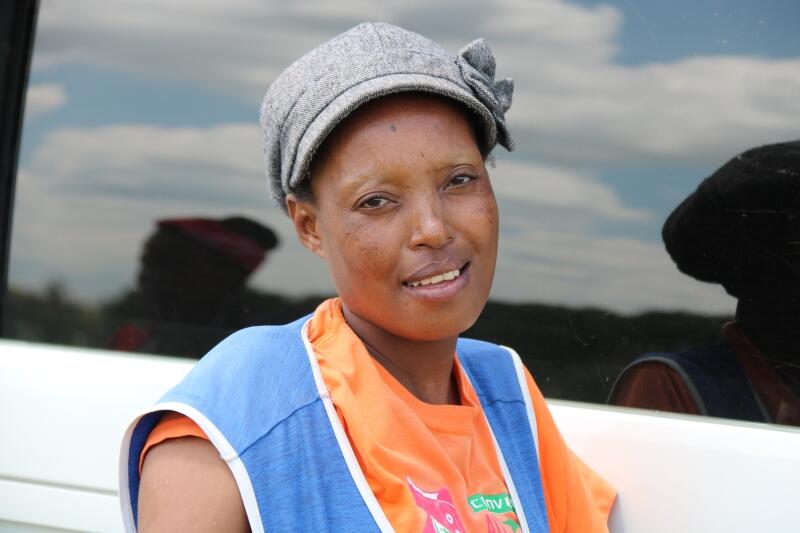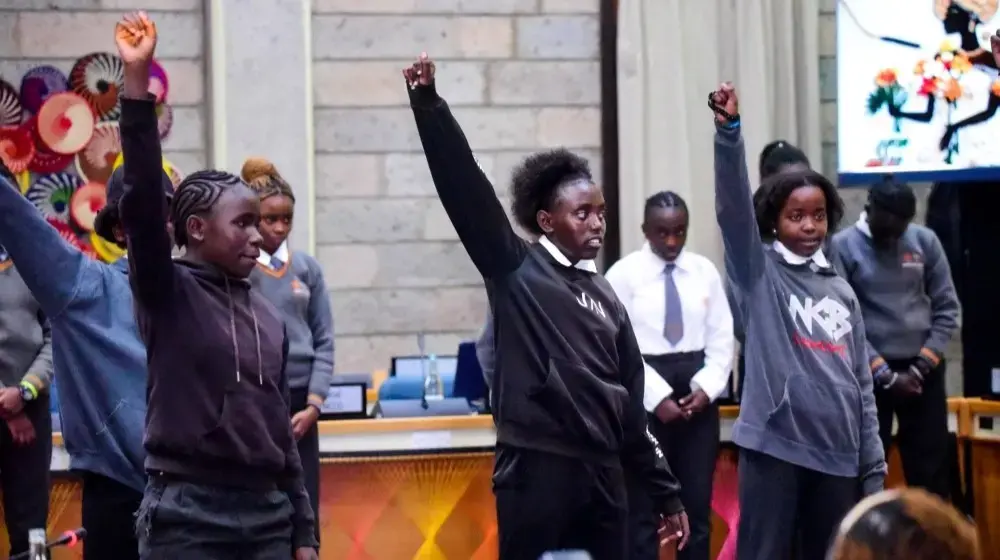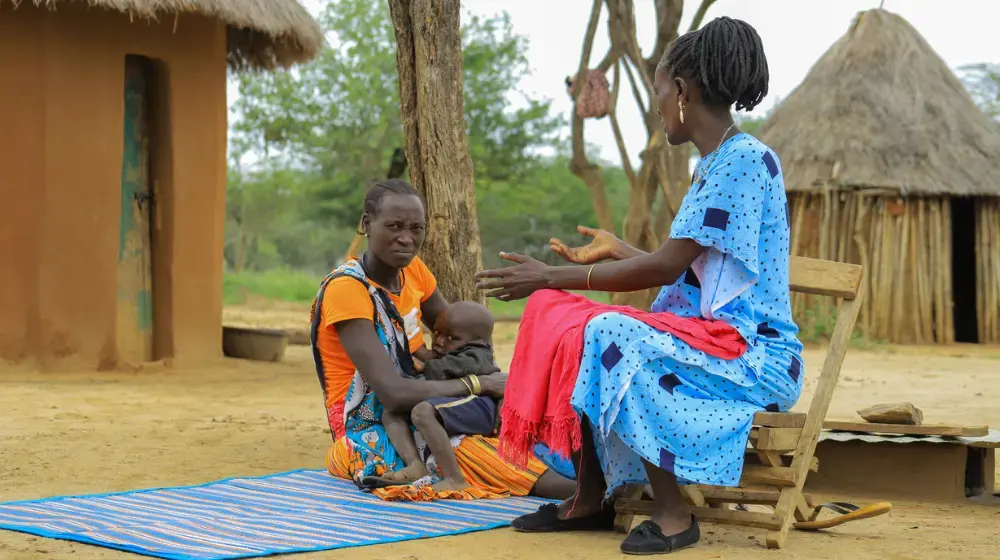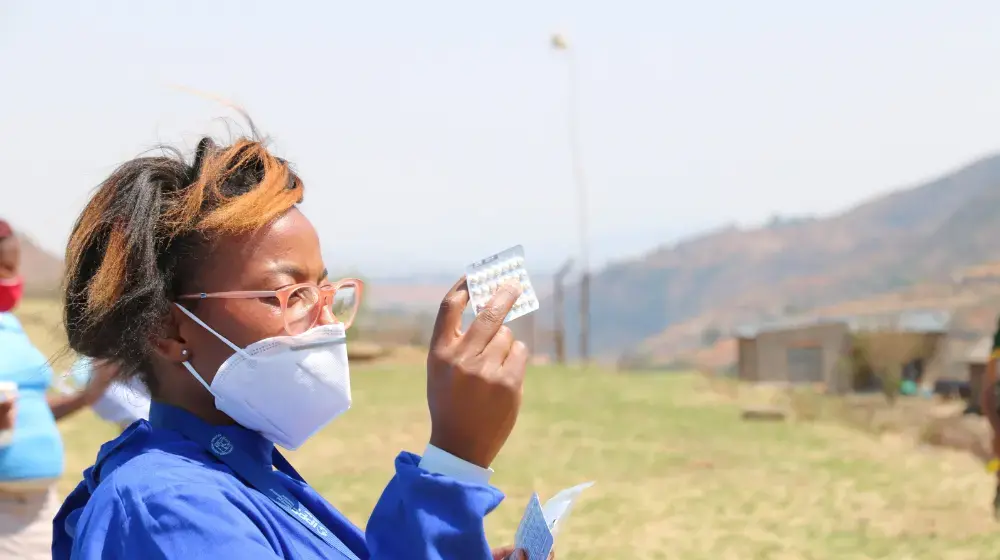MAPUTSOE, Lesotho – ‘Mankaiseng Motau, 36, hurries as soon as she realizes the mobile clinic has been parked in its usual location near the factory at which she works. She wants to be the first to be served so that she can finish before the end of her lunch hour.
“If it were not for this clinic, I would have to spend M38 (Maloti) for transport to get to the nearest health facility, where I would queue for the whole day. I earn M1,400 (about $100) a month from which a day’s worth would be deducted if I am away,” says Ms. Motau, a widow who pays schools fees for her three children from her salary.
Sometimes the queue is so long that by the end of her break, some of those waiting have not yet received services.
For women working at garment factories in Maputsoe, risking a pay cut due to accessing health services during working hours is now a thing of the past.
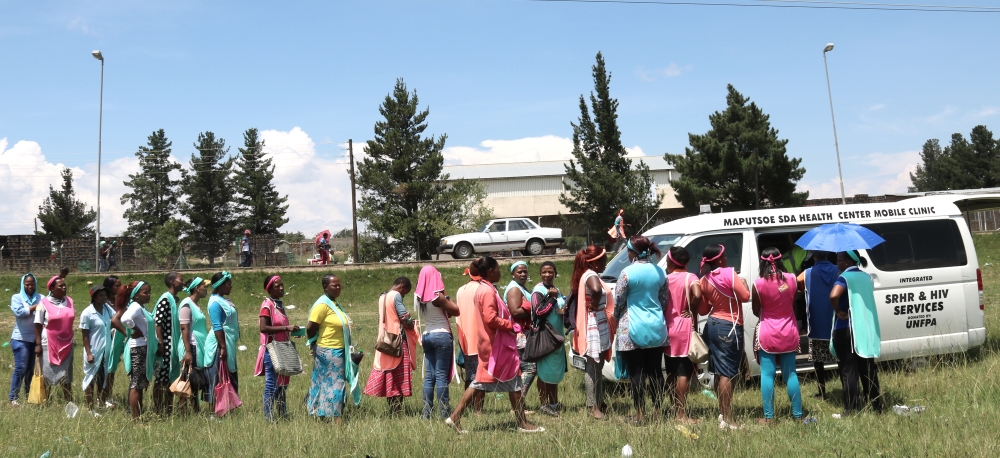
Making health services conveniently available
It’s been a year since UNFPA, the United Nations Population Fund, donated a mobile clinic to Maputsoe Seventh Day Adventist (SDA) health centre to offer Sexual and Reproductive Health and HIV services at Maputsoe, 85 kilometres outside Lesotho’s capital, Maseru.
The services are benefitting not only the factory workers and factory owners, but also those queuing for jobs at the factories. They are grateful that health services are now conveniently available, thanks to the mobile clinic. The clinic’s beneficiaries, most of them women, access the services during their lunch break.
A short distance away from where the mobile clinic is stationed is Unison Garment Factory. It’s workers are able to access health services at the clinic in their free time and as a result, few are now absent during working hours due to the need for health care.
‘Maleroi Makhele, the Human Resources Manager at Unison Garment Factory, says about 40 per cent of their 2000 workers receive Anti-Retroviral Treatment (ART) for HIV. It is for this reason that at least once a month, they are absent from work attending check-ups and picking up their medication at health facilities. However, as the mobile clinic dispenses ART, fewer workers miss work.
“These women are stressed,” Ms. Makhele says. “They have huge responsibilities as most of their husbands are unemployed.” Using their meagre resources, many of them raise not only their own children but other orphans as well. “The mobile clinic saves them money for transport to health facilities.”
The clinic has assisted the factory by reducing absenteeism. In terms of the African Growth and Opportunity Act (AGOA), there are targets to be met, she says.
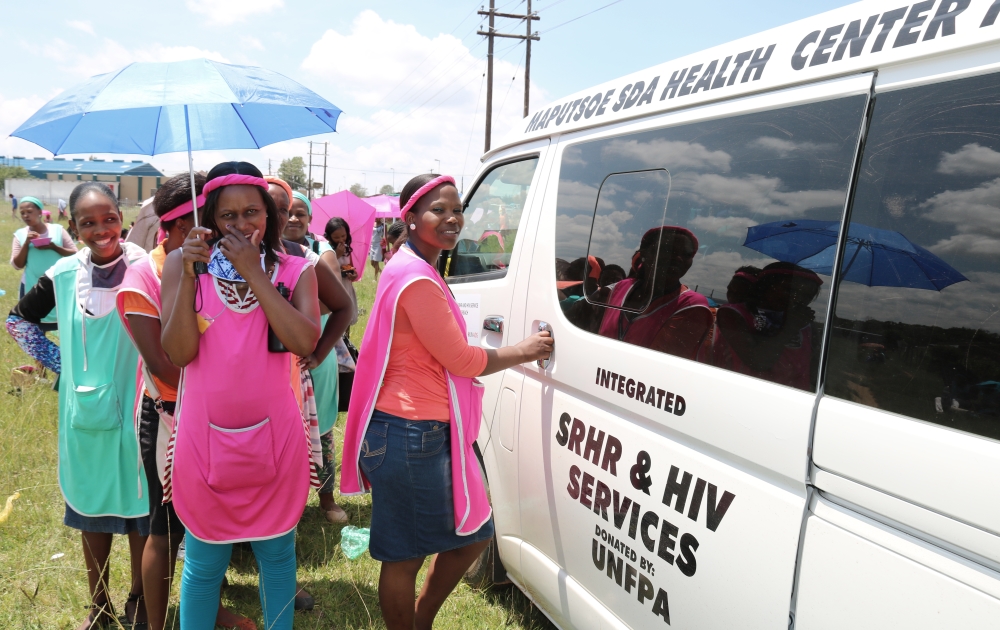
Women face high risk of HIV
Lesotho’s Apparel and Textile Industry employs more than 40,000 workers, most of them women. Of the 2000 workers at Unison Garment Factory, who are mostly aged between 20 and 40 years, men make up only two per cent.
One of the major challenges facing these working women is the potential for HIV infection.
HIV prevalence among women in Lesotho has increased from 26 per cent in 2004 to 30 per cent in 2014, while for men it has remained stable at around 19 per cent from 2004 to 2014. According to the Demographic Health Survey (2014), the overall HIV prevalence in Lesotho increased from 23 per cent in 2004 to 25 per cent in 2014.
Reaching more women with services
The mobile clinic was handed over to the government of Lesotho by UNFPA East and Southern Africa Regional Director, Dr. Julitta Onabanjo, in February 2016. The aim was to increase access to quality Sexual and Reproductive Health (SRH) services and HIV prevention services for factory workers.
From July to December 2016, more than 1,200 clients were reached with integrated SRH and HIV services. The mobile clinic has also assisted eight perinatal mothers, who were referred to hospital for emergency medical treatment. About 21 per cent of the 1200 clients were also provided with Family Planning (FP) services.
The mobile clinic has been provided thanks to support from the European Union and the governments of Sweden and Norway, under the coordination of UNFPA through the Sexual and Reproductive Health and Rights and HIV Linkages project. This offers a range of services to clients at each visit and under one roof, to improve efficiency and access to quality services.
By Violet Maraisane

